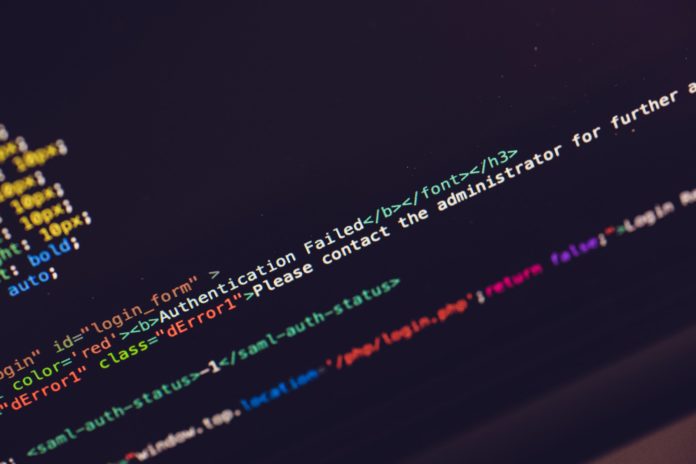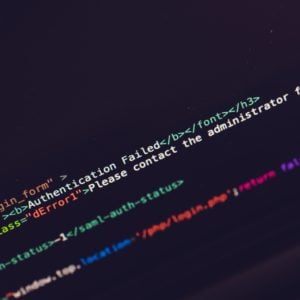Remote Linux Administrator Jobs: Balancing Flexibility and Technical Excellence
Information technology professionals can choose any field they like. In particular, the profession of remote Linux administrator is gaining popularity lately – more and more companies need this specialist, but there are few applicants in the labor market. To master this role, Linux administrators practice configuring these servers and systems, undergo appropriate training, and graduate from educational courses.
Suppose you are interested in the position of a remote Linux administrator. In that case, you will only master the field of information technology or want to change the qualification slightly. The experts of the job aggregator Jooble prepared for you useful educational material on the most basic concepts. From this article, you will be able to learn what exactly this specialist does, how to become one, what skills you need to have and many other useful things.
Remote Linux Administrator Jobs: what exactly do specialists do, daily duties
A Linux administrator is a specialist in the information technology field who deals with managing this operating system. Like iOS or Windows, Linux is an OS that connects the internal hardware in various electronics (computers, smartphones, and more). A Linux administrator is responsible for the technical issues of this operating system, working with other IT professionals (software developers, computer engineers, and the like).
The standard daily duties of the represented specialist include the following:
- updating the Linux operating system after a reboot or crash;
- backup;
- preventive maintenance;
- installing Linux servers and systems;
- checking system error logs;
- root analyses;
- handling incoming complaints and reports from users;
- training other administrators.
A remote Linux administrator ensures this operating system works as it should. They also have a lot of responsibility for security while installing new software and additional options.
How to learn the profession of Linux administrator
To become a professional remote Linux administrator, there are several steps to follow:
No. 1: Obtain a minimum education – a bachelor’s degree
To become a professional Linux operating system administrator, you must have a bachelor’s degree first. Most often, represented professionals earn a degree in:
- Information Technology;
- computer science;
- software engineering;
- telecommunications;
- information sciences.
Mastering this profession can take different periods, depending on the level of education and experience. For example, to graduate with a bachelor’s degree, you must spend at least 4 years and an additional 1-2 years to complete a master’s degree. It may take an additional 3 months to prepare for Linux certification. Also, most employers hire candidates with good experience – 2 years or more. Therefore, you may need to work in the field for some time before applying for a full-fledged remote Linux administrator position.
No. 2: Get a master’s degree
After getting a bachelor’s degree, it’s worth thinking about completing a master’s degree as well. If the future professional has a master’s degree in computer networking, it will significantly strengthen industry knowledge. For example, to become a real professional, it would be good to take courses in web server administration and database management – these are quite important skills for any administrator of the Linux operating system.
It is worth noting that not all employers require that candidates have a master’s degree. At the same time, it does provide an opportunity to stand out from other applicants.
No. 3: Take additional training courses
Specialized educational courses offer informative, structured lessons to gain a basic knowledge of the Linux operating system that can be further expanded upon as you gain more experience in the field. In particular, it doesn’t hurt to learn the basics of the systems, for example, how to write a script and more.
No. 4: Mastering Linux Installation Practices
While practising installing the Linux operating system, you can master the inner workings of the options to become a true pro. There are several easy-to-understand step-by-step instructions online on properly installing the OS on a device. Also, you can use the knowledge gained from educational courses during this process. After installing the operating system, it also helps to practice performing standard work tasks. It also doesn’t hurt to identify weaknesses and work on filling in the gaps.
No. 5: Obtain professional certifications
To prove your high level of professionalism to your employer, it doesn’t hurt to provide them with the appropriate certification that you’ve been trained as an IT administrator specializing in Linux. Some certificates may confirm basic knowledge, while others confirm mastery of a specific Linux operating system tool.
Various certifications for Linux professionals can be found at the Linux Professional Institute (LPI). In addition, the Linux Users Group (LUG) offers to become part of a large community dedicated to learning the operating system. The choice of certification depends on exactly what the administrator will specialize in.
What skills a Linux administrator must have to fulfil job duties
The general skills of a Linux operating system administrator include the following:
- The ability to solve a variety of problems. To keep the OS intact, the administrator troubleshoots and analyzes error reports. He also resolves user issues and investigates the pattern of network errors to prevent them in the future.
- Scrupulousness. The presented operating system requires special coding skills and compliance with certain rules, so the administrator must be as careful as possible about what commands he enters. If you enter the wrong code, Linux will not function properly, giving failures in other software, so the administrator must be quite scrupulous, double-checking his work to avoid various errors.
- Ability to communicate with other professionals. A Linux administrator must be patient enough and be able to listen to other people actively. The specialists actively cooperate with computer engineers and software developers to solve technical issues concerning this operating system. It would help if you also had to be able to adapt the information you are communicating to the person you are communicating with. For example, when communicating with another specialist, it is more appropriate to use complex language than with a simple user. It is also not uncommon for the represented professionals to train other people, which requires certain communication skills.
It is also worth noting separately the list of technical skills required:
- File system hierarchy. A fairly unique format characterizes the presented operating system, and the administrator must know how to organize the storage of files competently.
- Emergency system recovery. The specialist must take care of backups, restore files in this OS, and reboot the system so that confidential information is completely safe and secure.
- Linux file systems. The administrator can competently configure the network if he knows which systems the OS presented supports.
- Command lines. The presented specialist must perform various actions in this OS – delete files or copy, create accounts, etc.
- Firewalls and network security. This administrator, among other things, is engaged in installing security protocols and functions to notify of problems.
How much does a Linux administrator earn, and how to find a job
A system administrator’s salary per year is around $81,130. At the same time, it can vary depending on the specialist’s experience, education, location and other nuances. The annual salary range for Linux administrators is between $52,656 and $125,000.
If you’re interested in job opportunities for a Linux administrator position, it’s best to check out other Linux certification administrators. You can also find a lot of useful information on online job listing sites. Before you apply for any job, it is a good idea to tailor your resume to the position and include a cover letter that details your certifications, training, skills, and more.






